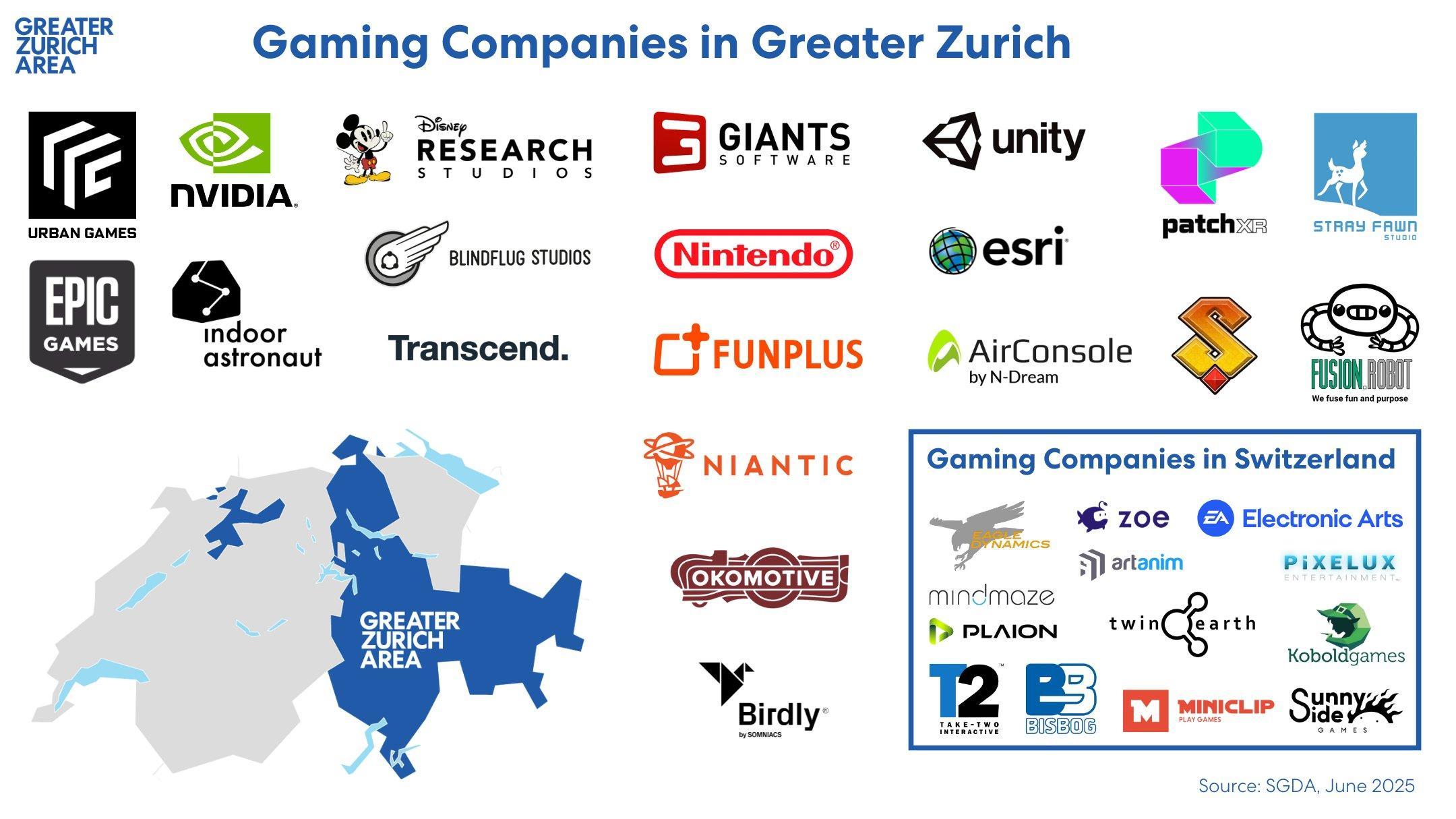A maturing industry
One of the clearest takeaways from Gamescom is how quickly the global gaming market is professionalizing. The industry is projected to reach $300 billion in annual revenue by 2028, and what might be surprising is that mobile gaming now accounts for nearly half of that total. To put that in perspective, the global gaming market is already larger than the film and music industries combined.
As the industry matures, the conversation is shifting from pure gameplay to strategic survival and growth. This is driven by very real market pressures: post-pandemic, slower growth and reduced investment appetite are pushing game studios to develop faster, more cost-efficiently, and with AI support to ease margin pressures.
This new focus on efficiency creates a clear opportunity for Switzerland, offering a strong AI ecosystem alongside attractive tax conditions, a strategic location with access to the European market, and a stable regulatory environment. While the country is well-known as a general business hub, its specific role within the gaming sector is less understood. In reality, a number of leading global gaming companies have already established their European headquarters in the country, proving its viability as a strategic base for the industry.

AI as the game changer
Another key theme emerging from the discussions at Gamescom was the role of artificial intelligence. While there is universal agreement on its enormous potential, the central question is how it will be implemented, whether on the development side to accelerate content creation or in the hands of players through smarter and more dynamic worlds.
For now, the industry is in a phase of intense experimentation to find the answer. We saw a compelling example in the Zurich-based startup nunu.ai, which is pioneering AI agents capable of both testing games and augmenting the in-game experience. This kind of hands-on innovation is where the widespread hype of AI will finally translate into new experiences for players.

Chinese studios take the global stage
For years, the global gaming landscape has been defined by studios from North America, Japan, and few European hubs. That era is definitively changing. A powerful trend on display at Gamescom was the prominent rise of Chinese developers, who are now creating globally anticipated, top-tier titles. With massive successes like Genshin Impact and Black Myth: Wukong, Chinese studios have proven they can compete at the highest level of creative and technical excellence.
And the momentum shows no signs of slowing down. A new wave of developers is following suit, with titles like Seasun's Mecha Break and S-Game's Phantom Blade Zero drawing huge crowds during Gamescom. It’s clear that China is rapidly becoming a major force in the industry, and its impact on the global gaming landscape will only continue to grow.

Our time at Gamescom painted a clear picture of an industry in transition, it's becoming more professional, more global, and more technologically ambitious. These three trends are creating a new set of demands: a need for stable, internationally-connected locations with a deep talent pool in innovation. As a result, the Greater Zurich Area is perfectly positioned to meet this moment and play a key role in the industry's future.

Why FunPlus chose Greater Zurich
Why FunPlus chose Greater Zurich
Accessing top talent and new international markets was the key driver behind the European expansion of gaming giant FunPlus. Learn how Zurich became central to the company's global strategy.
Meet with an expansion expert
Our services are free of charge and include:
- Introduction to key contacts in industry, academia, and government
- Advice on regulatory framework, taxes, labor, market, and setting up a company
- Custom-made fact-finding visits, including office and co-working space
